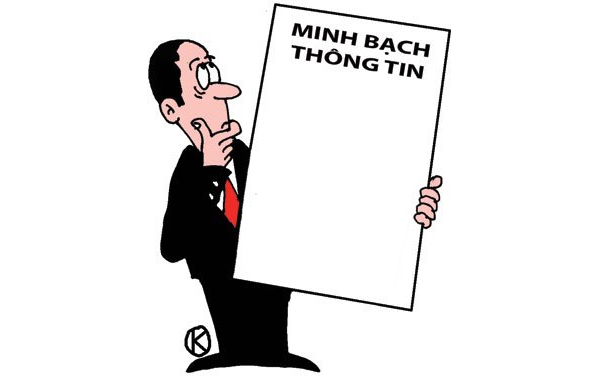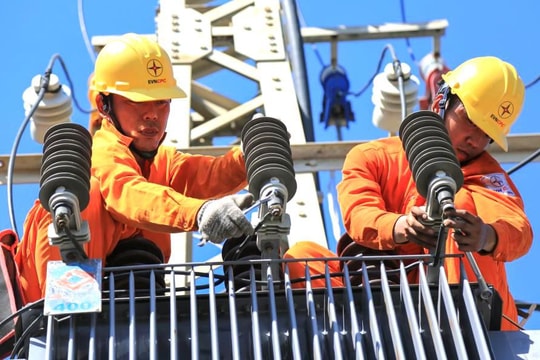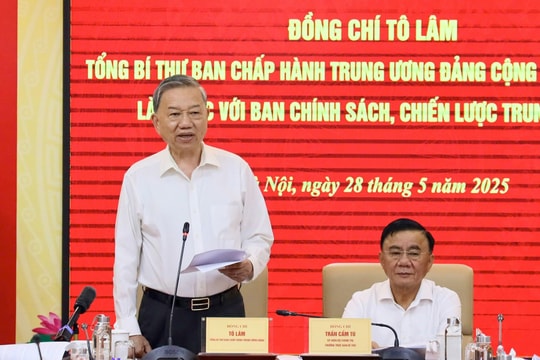Do we dare to be transparent?
We have many laws and decrees related to transparency. However, in reality, implementing them is extremely difficult, and sometimes even invalid.
Recently, many incidents have occurred that have had a significant impact on the country's development, partly due to lack of transparency in information. Here, the writer is not talking about security and defense issues, areas that need to be protected, and information that must be kept secret. But many areas that have nothing to do with national security secrets are also... "secret".
Transparency - an indicator of development
In fact, there has been exploitation, in the name of “internal affairs”, “business secrets”, “state secrets”… to cover up matters that are heavily influenced by group and personal interests. Project “bidding”, bidding for equipment purchases, purchasing machinery and materials, even appointments, selection of officials… are all secret.
 |
Transparency is considered an indicator of development and democratic living. In practice, where there is transparency, there is no room for lies and taking advantage of loopholes for personal gain.
We have many laws and decrees related to transparency. However, in reality, implementing them is extremely difficult, and sometimes even invalid.
For example, the Anti-Corruption Law. Corruption is the most painful area in today's society, one of the four risks that can ruin the country's development path. This reality shows that transparency in public procurement, basic construction; use of budget finance; in equitization of state-owned enterprises, in management of state-owned enterprises... is an indispensable requirement in state management.
Then there is the matter of declaring personal assets.
But what is the reality? The statement “corruption remains stable” is not a joke but the truth.
Asset declaration is said to be transparent and a breakthrough in the anti-corruption law, a correct policy but in practice it has not had much success.
The work of organizing cadres and the process of appointing cadres are considered very strict, a breakthrough, but in reality, there are national assembly representatives who have come up with a rhyme (or verse) that makes you laugh: The input is as rotten as soy sauce/ The output quality is equivalent to the input. Recent violations in the cadre stage, when investigated and ultimately reported to society, still have the same refrain: Following the process.
The process is correct, but the leadership quality is so poor, all the losses are huge.
Why is it difficult to be transparent?
So what makes it difficult for some correct policies of the Party and State to be implemented in real life? The policy of transparency is ineffective in some areas?
First of all, it is necessary to see that information is a special commodity. If in the military, information is the winning factor “know the enemy, know yourself, and you will win a hundred battles”, then it seems that this motto also spreads to every corner of life. It suddenly becomes a treasure to win, so it must be kept “secret”.
Next is the matter of holding information for personal gain. Only officials have this information. Information such as projects, bidding, upcoming roads, urban areas... even appointments, positions... In the context of the request-grant mechanism, it must be kept secret. You run, I give, you ask, I give and no one knows, it must be "secret".
In bidding, secrecy is a rule for all members, which is also… transparency. The mistake is that secrecy is with one person but not with another, leading to the phenomenon of collusion, which is a land for profiteering, making money, and is not transparent.
Third, information is swapped and distorted. This can be said to be quite common. Policies and guidelines are correct but in practice they are very different. They all find ways to neutralize or distort them. For example, the policy of transparency in real estate assets is correct but in reality it is distorted. The assets of the husband and father are in the name of the wife and children.
We do not have any sanctions to check the use of relatives and family members to buy and use their names. Also because we cannot control the "root" of the money flow, state management is always bypassed. This is an urgent reform but the banking system has not been able to do it.
And the field of power and position-seeking is still a problem, if not the leading threat today. It distorts society, prevents development, causes people to lose their hearts, and causes talented people to lack motivation. It is time to have other appropriate processes, demonstrating transparency in selection and organization of cadres that reflect the true value of talent and true qualities.
In many countries, leaders have the right to decide on personnel, but they must also take full responsibility for their appointments, which is transparency. As for our personnel work, it is the Party Committee. It is said to be democratically discussed, but in reality, it is still the leader who makes the decisions. However, when there are violations, individual responsibility cannot be assigned, but collective responsibility. This becomes a hiding place for violations, which is also not transparent.
Finally, the danger of information opacity is the ground for the forces to exploit. According to the law, when there is no official information, the enemy will immediately take advantage and steer it in another direction. Therefore, in the flat world, the problem is not to hide information but to be transparent, only then can stability be created, people trust, share and agree.
According to Vietnamnet.vn

.jpg)






